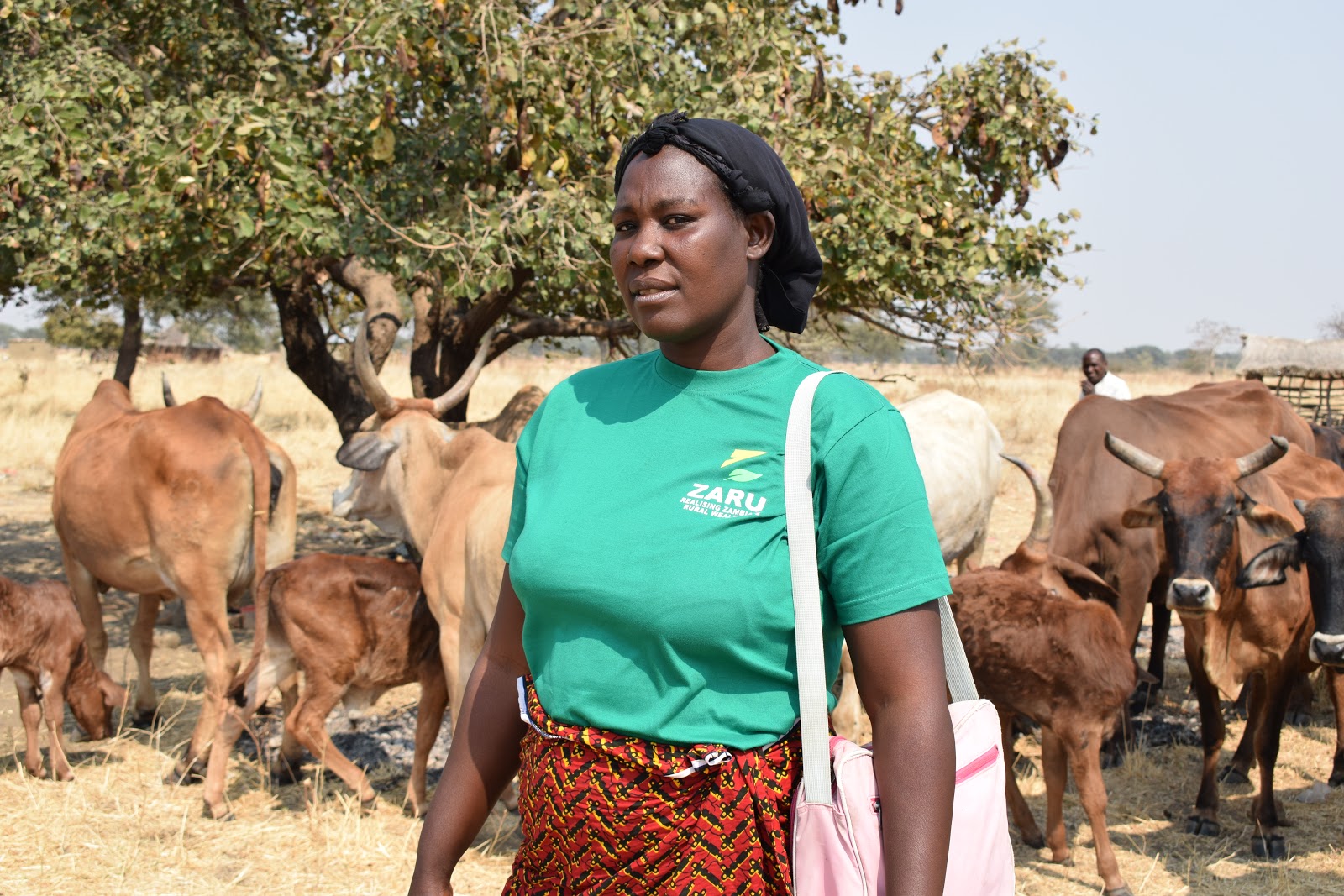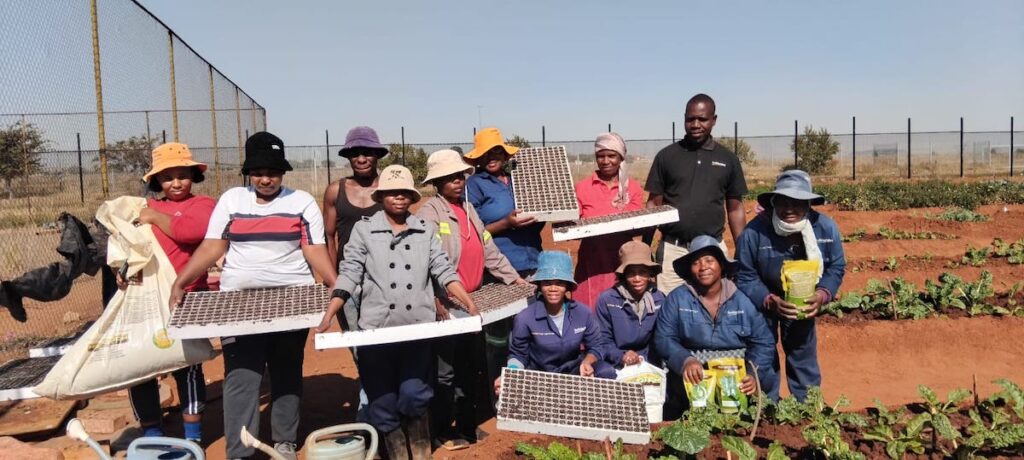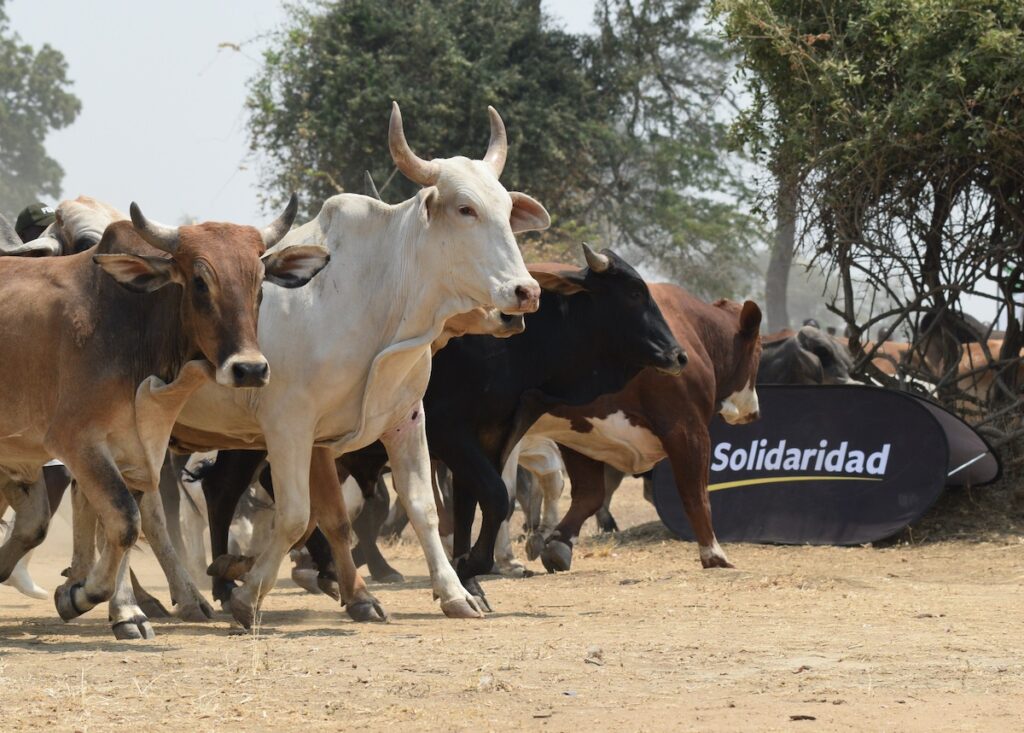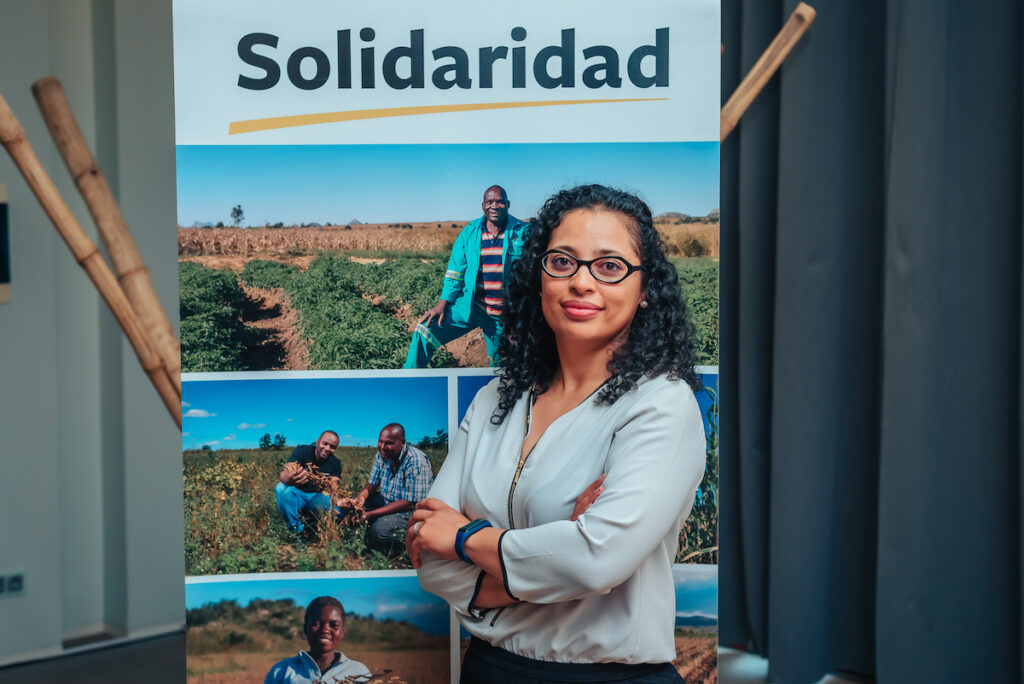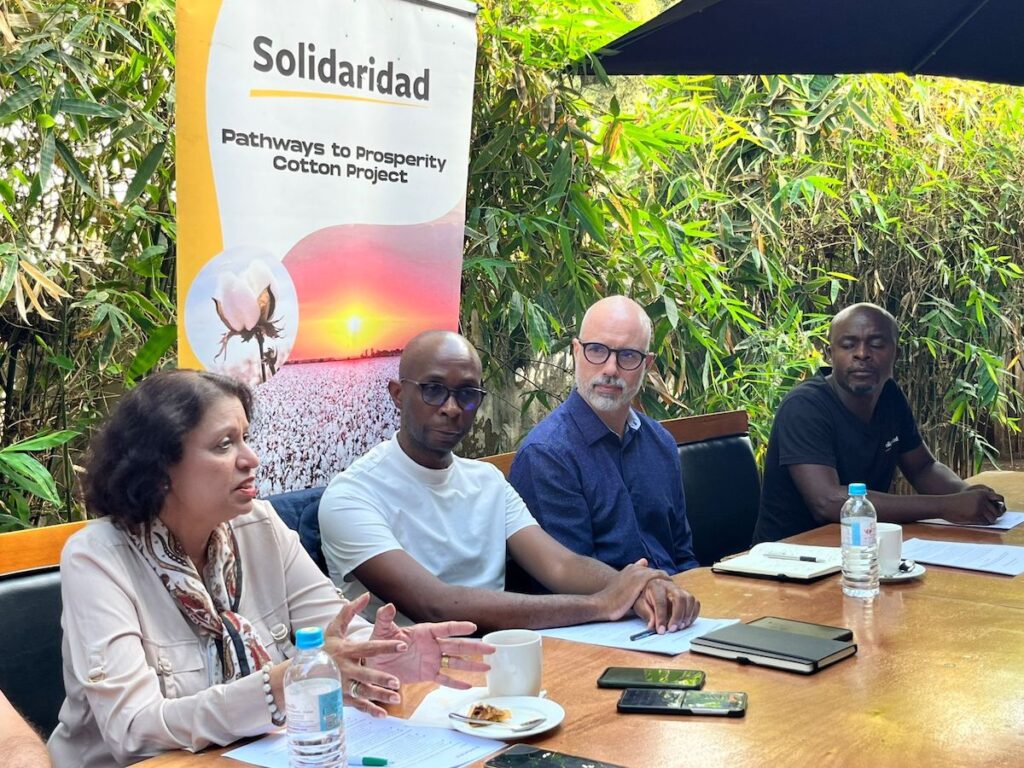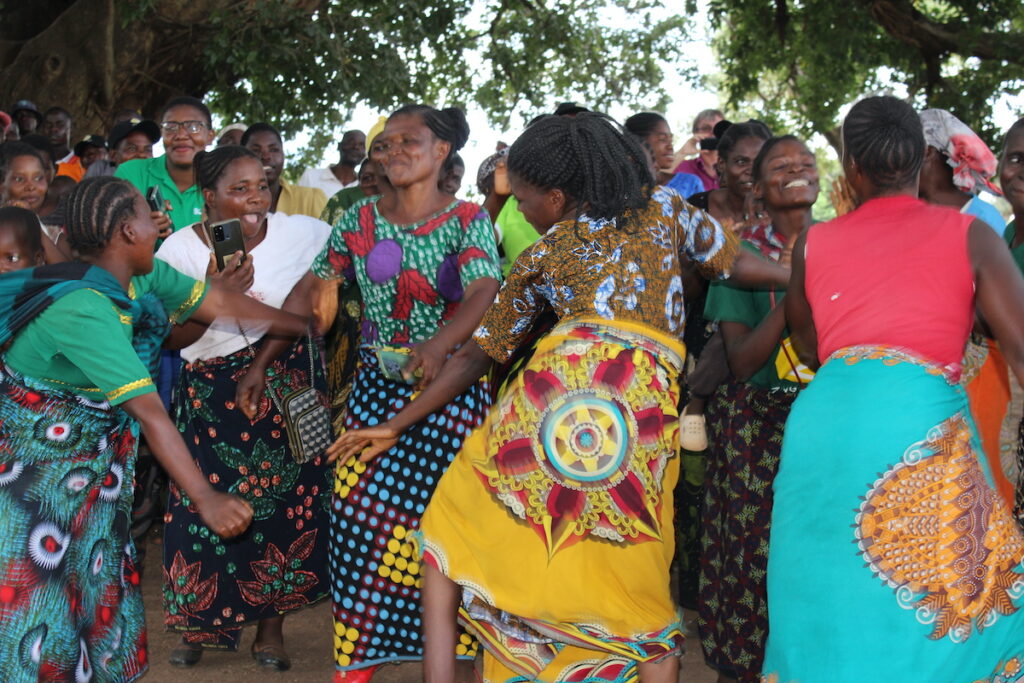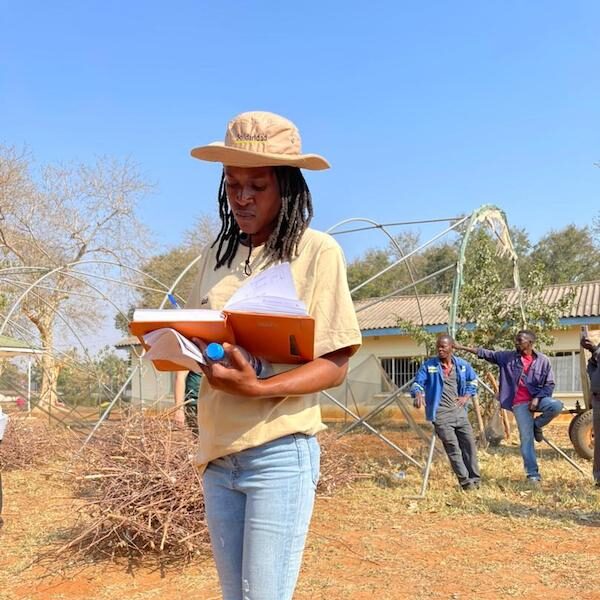Smallholder women’s participation in economic advancement across most communities in the Southern Africa region is still very much governed by cultural status, political affiliation and prevailing societal norms. These determine whether a woman should participate in the labour market, her job title and wage, or the type of business venture she owns. It is only in the urban areas and big cities that we start to see the gender gap closing due to women’s access to higher income, business opportunities and broader economic participation. In general, women across the region are still in the minority when it comes to the entrepreneurial landscape.
More than half of Southern Africa’s population is female, yet less than 50% of SMEs are women-led, according to a survey conducted by Facebook in partnership with the World Bank and OECD. Additionally, and as we already know from various studies, trade and agriculture are integral sectors driving economic benefits and wealth in most rural communities. We also know that women play a key role in trade and agriculture in the region, yet they remain the most disadvantaged or marginalized, having to face challenges which continue to impede the realisation of their full potential.
A look back in time
The above narrative contradicts traditional African societies where men and women had equal access to resources and opportunities. Various findings challenge the idea that women’s economic empowerment is a recent invention, suggesting that equality has been the norm for humans for most of our evolutionary history. According to Mark Dyble, an anthropologist who led a study at University College London, when people started to accumulate wealth, inequality and gender economic gaps emerged. There is considerable research and anthropological evidence showcasing how, traditionally, women from various African societies, alongside their male counterparts, participated and benefited equally through local economic wealth generation activities.
Traditional economic ventures were equally shared between the genders, with men banding together in hunting groups, as well as working the land. Women had high status in traditional societies, and in some cases, they were credited with skinning animals for clothes and tents, spinning cotton and wool, sewing, weaving, woodworking, and making baskets and pottery. Anthropologist Laurens van der Post who conducted much of her work in the Kalahari, states that women’s economic and wealth participation included sectors in food preservation; clothing making, building shelters and exchanging of their primary products through local community trade.
In many cases, both men and women contributed towards the local wealth, and women are said to have contributed two to three times more than men did.
Indeed this all changed with the arrival of the industrial revolution, which gradually resulted in women’s accomplishments in creating and preserving wealth going unrecognized, or lagging behind their male counterparts as discussed above. During the industrial revolution period, living standards increased to an extent that by the middle of the nineteenth century, men dominated the business sector and related economic industries, thus earning enough to retire their wives and children from economic activities in increased numbers. Women gradually stayed more at home, creating the current narrative where most are limited to occupying menial roles or domestic chores, which, though representing a significant share of economic activities, these activities are not counted as part of the GDP across many countries – which currently undermines female participation in the business world and lowers economy-wide productivity.
The Turning Point
Thanks to the forward thinking Beijing Declaration and Platform for Action adopted by Member States in 1995 there were substantial changes in eliminating the exclusion of women in economic activities through equal participation in highly skilled jobs across industries and in senior management. The 189 governments that signed the agreement committed to undertaking concrete action to address specific objectives towards enhancing women’s positions in the economy. As a result of this groundbreaking Declaration, women across the region are increasingly active in various sectors beyond farming to factory and processing industries, CEOs of companies, scientists, engineers, doctors, with some women holding traditionally male dominated positions, or positions that may have been unthinkable previously.
Despite this progress, economic & trade policies and budgeting processes at country level within the region remain gender blind. This is due to the lack of meaningful participation of women in trade policy making spaces. Inherently, trade policy making and national budgeting processes maintain a top-down approach which very often neglects to include, or address the specific concerns and needs of women. The sectors of trade and agriculture gained the reputation of embracing exclusive approaches, especially gender blindness in their exclusion of women who make up the key players within these sectors.
Yes, we have a long a way to go! The region is lagging behind countries like Uganda and Rwanda in adopting gender responsive budgeting processes which are key to promoting greater transformation and equality within smallholder communities, and across all economic sectors within the region. From a business perspective, there is strong evidence that capitalizing on women’s economic participation and investing in women across various sectors such as education, financial and digital inclusion, legal protection, and unpaid care work can promote wealth and economic growth. From a practical point of view, Solidaridad has been able to generate evidence through these two case interventions:
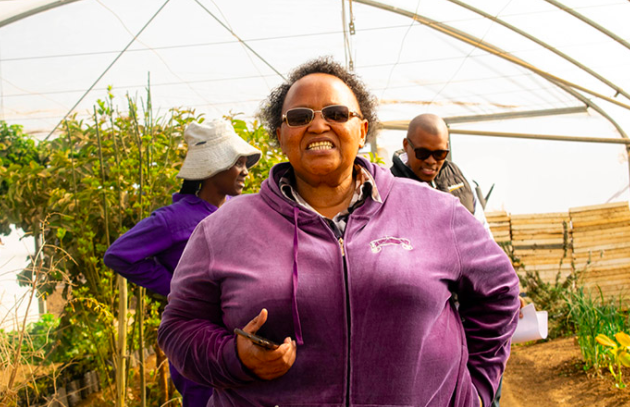
Linking women farmers to high-value markets in South Africa
Nomxolisi Mathe is one of 105 female farmers taking part in Solidaridad’s Farmer2Market project in South Africa.

How investing in gender equality impacts communities: Josina’s Story
Josina, a soy farmer in Mozambique, is growing her business and her community.
These two cases reveal that women’s access to opportunities across value chains have the ability to reduce household inequality and poverty. Resources invested in women’s hands have a range of positive outcomes for human capital and capabilities within the household and entire communities.
Other opportunities that our regional governments and other development actors can take advantage of to effectively promote the reduction of gender disparities in business, the economic space and trade sectors include:
- Gender lensed investments: This involves deliberate and systematic investments (land, finance, infrastructure etc), enterprise programs and trade policies that results in a positive transformation for women.
- Programmes and skills across all economic sectors, especially in commerce, science, technology and innovation disciplines – and investing in women’s businesses and other opportunities across chains
- Provide mentoring and coaching interventions to women led enterprises, providing capacity enhancement training to young or aspiring female entrepreneurs
The Business Returns
Our region is in desperate need of a fundamental transformation of power relations within the agricultural sector and related chains, political and cultural arrangements. The old paradigm of gender as a cross cutting theme, or an integration/mainstreaming issue is simply inadequate to realise women smallholders’ potential. What we need instead are creative and innovative solutions that foster sustainable rural economic growth, creating and securing jobs for youth, and increase competitive abilities for emerging producers. More broadly, some of the positive returns of investing in women from a business perspective include:
Economic growth
According to McKinsey Global Institute (2021); closing the gender gap in key areas/sectors could add a staggering $28 trillion to the global GDP. The institute states that countries stand to gain if women equally participate in economic activities. Gender equality is therefore an important factor in achieving economic growth and this includes ensuring women’s equal access to technology, financial products and other gender sensitive services such as health and education.
Partner with us
We’re always looking for partners who believe that profit is more than just financial. What can we help you achieve?
Increased prosperity
Studies by the International Labour Organisation (ILO) show that gender parity leads to economic prosperity and is good for business. This can be achieved through more evolved gender policies, enabling environments that promote gender equality and an overall spirit of gender inclusion in trade and across sectors. Corporate companies and governments effectively have an important role of influence to ignite and promote business and career advancement for women, equal trade opportunities and a workplace culture that effectively unlocks potential, or an environment in which women can advance and thrive.
Competitive advantage and the achievement of sustainable global goals
Research by the Business and Sustainable Development Commission shows that pursuing sustainable and inclusive business models could unlock significant economic opportunities. The Commission states that when corporate companies assess how their business aligns with the SDGs, they will have a competitive advantage over companies that don’t contribute towards global goals or keep ahead of global policy interventions. These companies will ultimately have the added advantage of using their contribution and knowledge to revise their business strategies and be global change makers.
Better community returns
Societies that are not inclusive are less cohesive and have higher rates of violence, crime and other social ills. Countries with greater gender equality are more connected, experience less gender related issues or violence, and the citizens are healthier and have better social status and wellbeing.
Business Innovation
According to Accenture, gender equal business environments are more likely to have varied ideas, perspectives and business approaches, resulting in increased /diverse products and impact, better returns and productivity and decisions that are inclusive. Organizations, companies and governments that seek sustainable growth have to innovate by creating an inclusive culture. Gender lens innovations can lead to more innovative and diverse solutions driven by women as well as solutions that solve the unique needs of women. Further, gender lens innovations can help investors identify profitable investment opportunities they may not otherwise see and support investees in applying a gender lens within their businesses that ultimately enhance profitability.
For more information about our Gender work and service offerings, please contact our Regional Gender and Youth Advisor, Precious Greehy

